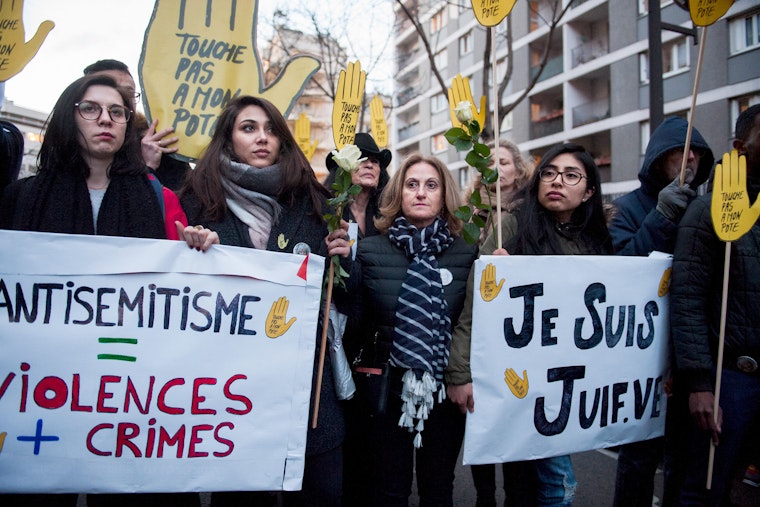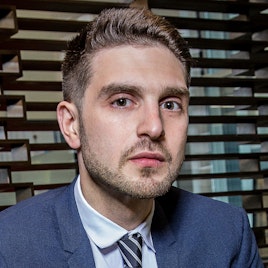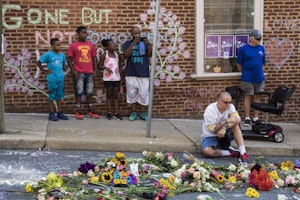Open Society’s Fight Against Antisemitism
By Alex Soros

The horrific Hamas attacks of October 7 and Israel’s devastating military response in the weeks since have cost countless lives and caused unimaginable destruction. The situation has also led to increased polarization in the Middle East and across the world. In the U.S., there are fervid debates now raging in the streets, on college campuses, and in the halls of Congress.
I write to set the record straight, in the face of sustained distorted and dishonest right-wing attacks, about my family and the work of the Open Society Foundations I lead.
My father was born in Hungary in 1930. If not for the fact that his father was able to secure false identity papers, he would have likely perished in the Holocaust like countless members of his family.
That experience informed his lifelong commitment to help others who face discrimination purely for who they are. Over the course of more than 30 years of philanthropic giving, he has consistently strived to support those pushed to the margins of society—including LGBTQIA individuals, refugees, drug users, and sex workers—and to combat ethnic, religious, and racial hatred in all its forms.
Battling antisemitism has been a core part of that work.
When Donald Trump was elected in 2016, my father called his colleagues in the U.S., deeply worried about Trump’s incendiary rhetoric and the spate of hate crimes it had helped spur against Muslim, Latino, Black, LGBTQIA, and immigrant communities across the country—including a disturbing surge in Nazi symbols as graffiti and the desecration of Jewish cemeteries. My father immediately announced a $10 million Open Society investment to create Communities Against Hate, an effort to monitor and encourage reporting of the depth and scope of hate incidents unfolding across the country and connect the victims of hate crimes with legal and social services.
When neo-Nazis and white supremacists marched on Charlottesville in the summer of 2017, the Foundations supported litigation on behalf of peaceful protesters, clergy, and innocent bystanders against participants in the “Unite the Right” rally, many of whom touted their affinity for Adolph Hitler and chanted “Jews shall not replace us” as their hateful mantra. Aided by our grantee Integrity First for America, the plaintiffs made the case that the defendants had planned to trigger a “race war” and create a “white ethnostate.” A jury found in the plaintiffs’ favor, holding that the rally participants had trampled on the civil rights of minorities and their supporters standing up for their communities that day.
His Jewish identity and strong stand against hate has made my father himself the target of hate crimes. In 2018, a pipe bomb was planted at our family home and at the homes of a number of other high-profile political figures; the perpetrator was later found to be a Florida man whose social media accounts were rife with antisemitic smears of the Soros name. Five days after the pipe bomb was found, a deranged gunman shot and killed 11 people at Pittsburgh’s Tree of Life synagogue. As the BBC described the incident, “it was the worst act of anti-Semitic violence in U.S. history—and it was carried out by a man obsessed with George Soros.”
None of these regrettable incidents have dampened the determination of my father, myself, or our Foundations to continue the fight against hate.
When it comes to Israel and Palestine, my father was an avid supporter of the Oslo Accords. I recall visiting Israel with him in 1994 at the invitation of Yitzhak Rabin just months before he was assassinated, and reflect on my father’s long-running support and advocacy for a two-state solution through the Geneva Accord in 2003. Since then, we have seen little progress.
For the past several years, Open Society has supported a diverse group of partners with different political leanings—and different views on Israel and Palestine and what the peaceful resolution of the historic conflict might look like. Their common bond: their belief that antisemitism—and also the disingenuous weaponization of the term to silence debate—presents a grave threat to democracy.
Last summer, the Biden administration announced its National Strategy to Counter Antisemitism, a first-of-its kind initiative forged in the wake of an alarming rise in antisemitic incidents in 2021–2022.
This effort occurred against the backdrop of efforts by the Netanyahu government and its allies to shape a working definition of the term to shield Israel from any accountability for its human rights policies—which had taken an increasingly aggressive and hostile posture toward the land’s Indigenous Arab population.
Open Society’s partners worked to help counter that effort—and support the Biden White House’s broad-based approach to the problem, building a bipartisan consensus in the fight against violent extremism and making it a national priority, while preventing the term from being used as a cudgel against those who speak out for Palestinian human rights and curtailing the free speech and policy debates that are fundamental to open societies.
Late last year, my father passed the torch of leadership of the Foundations to me. I honor his commitment to the fight against hate in all its forms, and to combat antisemitism wherever it may rear its ugly head. My earliest forays in philanthropic work were to support Bend the Arc, a movement of progressive Jews across the U.S. “fighting for justice and equality for all.”
Since the Hamas attacks of October 7, Open Society has been the target of a barrage of distorted and dishonest attacks in right-wing media, accusing us of supporting Hamas and its terrorist tactics. These falsehoods may soon migrate to debates unfolding on Capitol Hill.
For the record: the Open Society Foundations do not support Hamas or any other group dedicated to violence and terror, as we have stated publicly. We are in full compliance with U.S. anti-terrorism laws, and none of our partners have ever been designated under U.S. law as supporting terrorism. All the groups we support are publicly committed to nonviolence and adhere to the principle that human rights and safety should be enjoyed by Israelis and Palestinians alike, both currently and in whatever political solution eventually emerges in the region.
And we have made a series of recent investments, building on that track record, to help further combat the scourge of antisemitism. Last summer, Open Society made a substantial grant to the Birkbeck Institute for the Study of Antisemitism at the University of London—funding that will support ongoing research and public engagement aimed at promoting “a better understanding of contemporary antisemitism” and challenging “the misuse of charges of antisemitism in the international politics of Israel and Palestine,” as the Institute said in announcing the grant.
In December, the Foundations announced an emergency investment of $3.3 million to be directed to leading human rights organizations documenting violations of humanitarian law and protecting vulnerable communities under attack in the West Bank and inside Israel.
And today I am announcing $1 million in additional funding to combat antisemitism and hate and work to further prevent the weaponization of antisemitism charges from undermining efforts to address the root causes of the conflict.
There is no place for antisemitism in an open society.

Alex Soros is chair of the Board of Directors.
